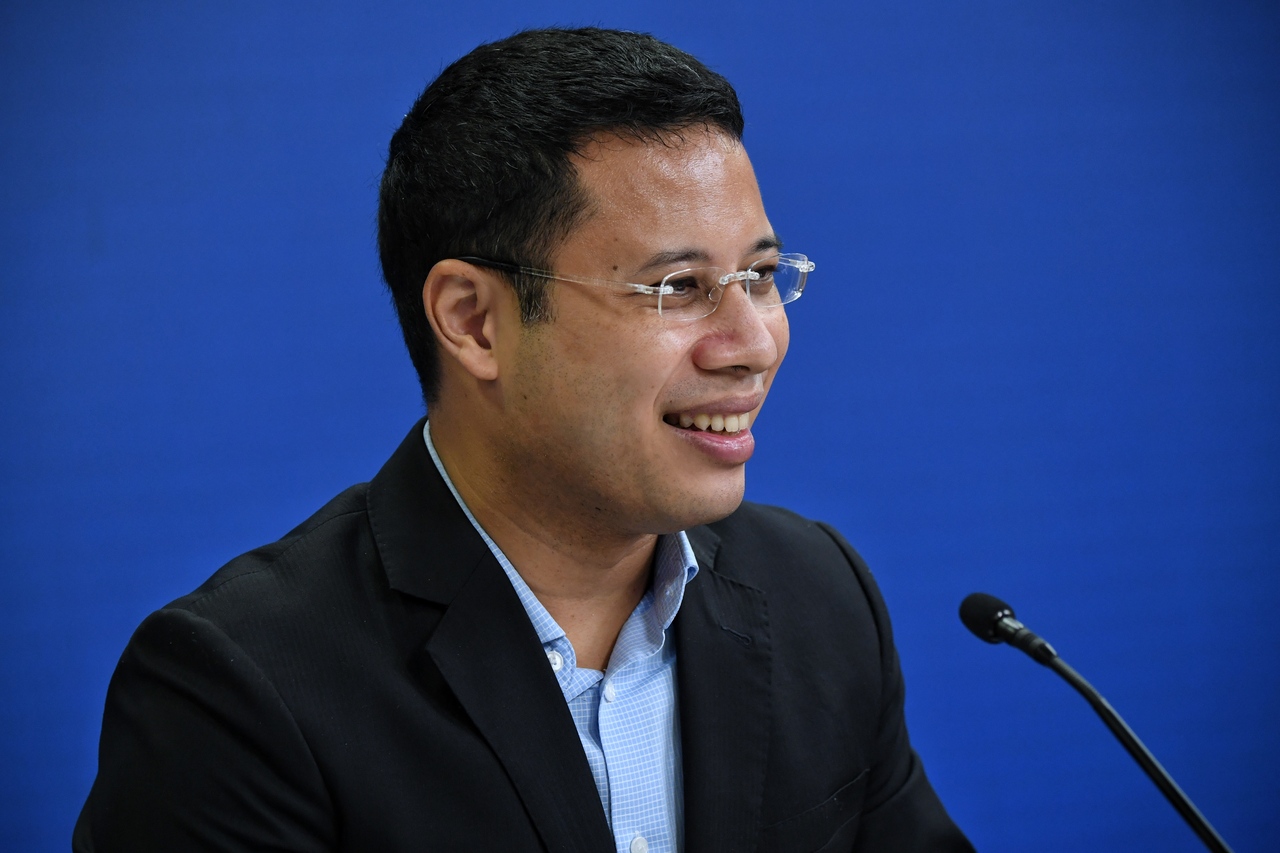Emerging Stronger Taskforce: S'pore's economic transformation must lead to better jobs, says Desmond Lee
Sign up now: Get ST's newsletters delivered to your inbox

Minister for National Development Desmond Lee speaking at a press conference by the Emerging Stronger Taskforce on May 17, 2021.
ST PHOTO: KUA CHEE SIONG
SINGAPORE - Singapore's economic transformation is only meaningful if it brings better jobs and wages for workers and improves their lives, said Minister for National Development Desmond Lee on Monday (May 17).
And the Emerging Stronger Taskforce (EST) has worked closely with the labour movement to address the needs and concerns of workers, and make sure none of them get left behind in the post-Covid-19 economy, he said.
Mr Lee, who co-chairs the task force guiding Singapore's economic recovery from the Covid-19 crisis, was at a press conference after the task force issued its report.
As Singapore reshapes its economy into a node for technology, innovation, and enterprise, workers will be given the help and resources they need to take on the new jobs being created, he said. "We need to enable our workers to play their part in proactively closing skills gaps and preparing for a much more uncertain future."
The task force has submitted its recommendations to the Future Economy Council, and they include strategies to build an agile and strong Singapore core in the workforce.
Task force member and unionist Jessie Yeo said contrary to what some have said, that the "EST's work is actually done 10,000 feet above the ground, and people don't quite understand", there are actually ample opportunities for better job prospects for workers.
For instance, it has piloted a new approach to public-private partnerships through Alliances for Action (AfA), and Ms Yeo recounted how an older bus captain involved in the AfA on autonomous vehicles was initially concerned about his job and having to pick up new skills.
He realised the technology had removed many of the pain points, she said.
"Today, he's very happy that he's able to move in an autonomous vehicle versus (the) traditional (way of) driving a bus on the road."
Mr Lee acknowledged that workers in some sectors may be apprehensive about what the task force's recommendations may mean for them, and said the Government will work closely with the unions and companies to address their concerns.
One recommendation is that the Government make a concerted push to help grow local companies into global champions, or Large Local Enterprises.
Mr Lee gave the example of AEM, which provides testing solutions for semiconductor manufacturing, and has gone from being a contract manufacturer to a global provider of test solutions based on its own core intellectual property.
It saw tremendous growth amid the pandemic, and recorded its highest revenue of over $500 million in the past fiscal year. Its market capitalisation also crossed $1 billion.
Mr Lee promised support to help such companies position themselves at critical nodes in the global value chain and "punch above our weight".
Smaller players will not be left out. Under the AfA on smart commerce, CapitaLand and online shopping platform Shopee had reached out to small and medium enterprises (SMEs) and micro SMEs to help them go from "offline to online and then online to offline".
Said Mr Lee: "It... was a university of smart commerce that enabled operators like Shopee, and others, to be able to work with many SMEs to onboard them because it was for mutual benefit, mutual gain."
Deputy Prime Minister Heng Swee Keat, who chairs the FEC, said Singapore has a variegated landscape of companies of different sizes, productivity, wage levels, and workforce, among others. Among the micro SMEs with revenue below $1 million, some are mom-and-pop shops and others are young startups. "So we need to take a very clear and differentiated approach... a segmented approach to understand the needs of our companies to see how we can work together with them."
For the very small micro SMEs, including neighbourhood shops, there are a number of platform solutions to help them adopt e-payment systems, for instance.
To help the medium enterprises with growth potential, agencies have moved away from pushing particular grants for a specific area they are in charge of to a more company-centric approach that tailors the help based on a company's needs, he noted.
Mr Heng and Mr Lee said the key to helping Singapore companies is to bring them together in one ecosystem. Smaller companies need to work together and "hunt as a pack", so that they will have a good fighting chance when they go overseas, said Mr Lee.
"In this world, size matters. We don't have size all the time or most of the time, but if we can work together and collaborate very efficiently, very effectively, and very innovatively using technology and digitalisation as a spine, and having that positive mindset of collaboration... that gives us a fighting chance not just locally, but to strike at markets overseas as well," he added.


